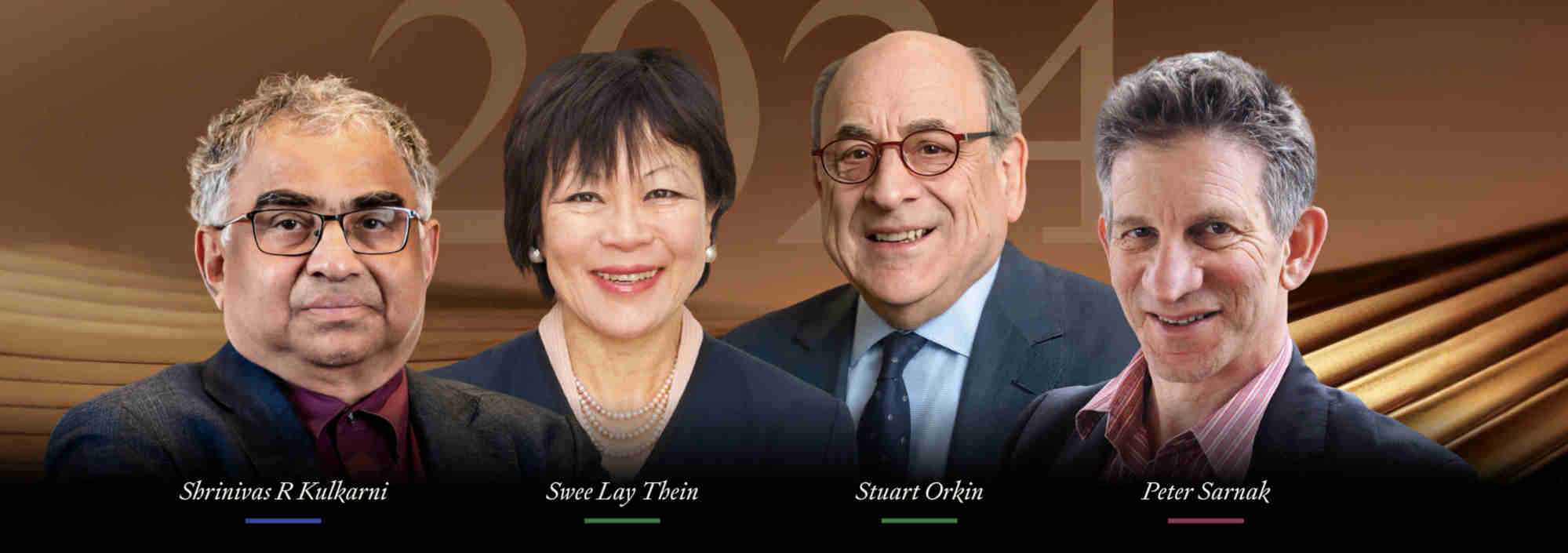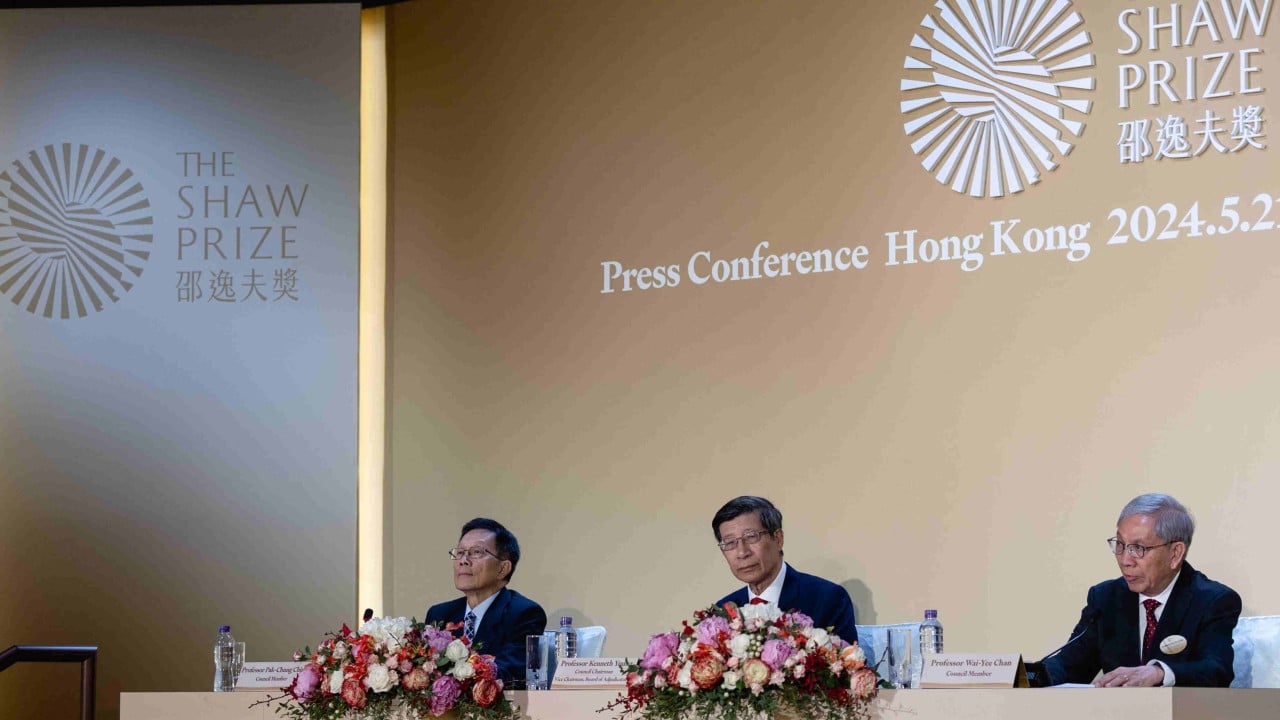Hong Kong’s Shaw Prize awarded to 2 scientists for study into treatment for blood disorder affecting 20 million
Two life scientists whose research contributed to a cure for a blood disorder affecting 20 million people worldwide are among this year’s winners of Hong Kong’s prestigious Shaw Prize.
American scientists Thein Swee Lay and Stuart Orkin on Tuesday received the Shaw Prize for Life Sciences and Medicine for their analysis of blood cell disorders.
The pair’s research provides an alternative treatment for sickle cell disease and beta-thalassaemia, conditions affecting the production of the adult form of haemoglobin, the protein in red blood cells that transports oxygen.
Thein found that the difference in the disease severity in patients was due to a gene called BCL11A, a major regulator of a type of haemoglobin only found in fetuses below six months old.
Orkin’s research established that altering the BCL11A protein using gene editing could reactivate fetal haemoglobin production, providing an alternative treatment to blood transplant.
The Food and Drug Administration in the United States approved two sickle stem cell therapies last December, based on Thein and Orkin’s work.
“Thein Swee Lay and Stuart Orkin’s work exemplifies how basic discovery, disease research and translational medicine can drive the development of transformative therapies that save lives,” said Professor Bonnie Bassler, the chair of the prize’s life sciences and medicine selection committee.
The two winners would receive an equal share of the US$1.2 million prize money for the life sciences and medicine category, the organisers said.
In other categories, American astronomer Shrinivas Kulkarni was the recipient of the astronomy award for his leading discoveries in surveying transient astronomical phenomena, which are short-lived celestial events with durations of fractions of a second to weeks.
Kulkarni, a professor of astronomy and planetary science at the California Institute of Technology in the US, has built facilities that housed a telescope which scans the entire northern sky every two days and analyses the data using automated software.
“These surveys have discovered thousands of rare events including exploding stars, the disruption of stars by tides from black holes, a planet swallowed by its host star, binary stars with orbital periods as short as few minutes and many phenomena whose properties are not yet understood,” said Professor Scott Tremaine, chair of the prize’s astronomy selection committee.
Tremaine said that all of the data from these surveys were made available within minutes to other astronomers and the public, which was a “remarkable example of the democratisation of science beyond national borders”.

The study of transient phenomena involving the sun provided predictions of “space weather” which helped with planning for solar storms that disrupted radio communications and power-transmission networks, he added.
Another US recipient, Peter Sarnak, won the prize for mathematical sciences for his development of arithmetic theory in the study of prime numbers.
The awards were established in 2002 by the late entertainment mogul Run Run Shaw to honour individuals’ outstanding contributions in their fields, with a prize of US$1.2 million in each category.
Recipients of the prize in all three categories – astronomy, life science and medicine, and mathematical sciences – will be invited to a ceremony in Hong Kong on November 12.


